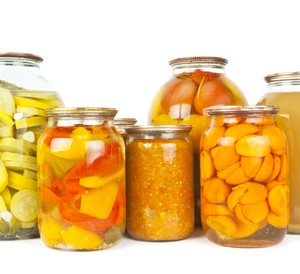

| Visitors Now: | |
| Total Visits: | |
| Total Stories: |

| Story Views | |
| Now: | |
| Last Hour: | |
| Last 24 Hours: | |
| Total: | |
Essential for Survival After Natural Disaster: What to Store
 Superstorm Sandy was a stark reminder of potential climate change and a new normal when it comes to natural disasters. Some people in the Northeast were without power for weeks following the storm, while others had to wait hours in line for a couple gallons of gasoline. Every household should have a survival kit containing the essentials needed to weather the storm until normalcy can be restored. The cost to compile the kit is nothing compared to what life will be like without it in the aftermath of disaster.
Superstorm Sandy was a stark reminder of potential climate change and a new normal when it comes to natural disasters. Some people in the Northeast were without power for weeks following the storm, while others had to wait hours in line for a couple gallons of gasoline. Every household should have a survival kit containing the essentials needed to weather the storm until normalcy can be restored. The cost to compile the kit is nothing compared to what life will be like without it in the aftermath of disaster.
Water
Human beings can only survive a maximum of five days without water, and that is under ideal conditions. Floods, hurricanes and earthquakes can knock out municipal water sources for weeks at a time. Whether in the basement, attic or spare room, a few gallons of water should be stored in every home, especially when there are children. Some water may still flow through the pipes when the faucet is turned on, but it could be contaminated with bacteria. Purification tablets can be dropped into a cup of this water to kill any deadly microbes. These can also be used in flood water when absolutely necessary. The tablets will give the water a bitter taste, but it can be somewhat neutralized by crushing Vitamin C tablets and stirring the powder into the water.
Cash
ATM machines, as with everything else requiring electricity, can be inoperable in the aftermath of disaster. Even if the local supermarkets re-open soon after the storm or quake, supplies will be limited and cash will be the only form of payment excepted. A small safe can be purchased and stocked with enough cash to buy fuel, food and other essentials needed for survival. Many survivalists prefer buying gold coins from bullion dealers such as US Money Reserve for storage and investment purposes. These coins are tangible assets and will not only gain value as time passes, but can be traded for paper dollars or even directly for supplies in certain situations.
Fuel
Its hard for people to appreciate the comforts and conveniences provided by electricity and gasoline until they are taken away from them. Most furnaces are run on electricity or natural gas, and will be inoperable during a disaster. There are several portable propane heaters made for indoor use that can be used in the meantime. Propane can be purchased in one-pound cannisters or 20-pound refillable cylinders. Like all fuel, propane should be stored in a cool, dry place, and away from direct sunlight. A few gallons of gasoline can also be stored in this way, but only in a metal drum or other container approved for this purpose. An additive such as Stabil will be needed to store the gasoline for more than a year, otherwise it will evaporate and be contaminated with water vapor.
Food
A good supply of non-perishable and canned foods can store for years and save your family when the electricity goes out. There are companies that offer ready-to-eat, dehydrated meals that only need water added. These meals are expensive, however, and a few cans of corn, green beans, and tuna are just as effective and probably taste better.
2013-02-19 12:50:30
Source:


